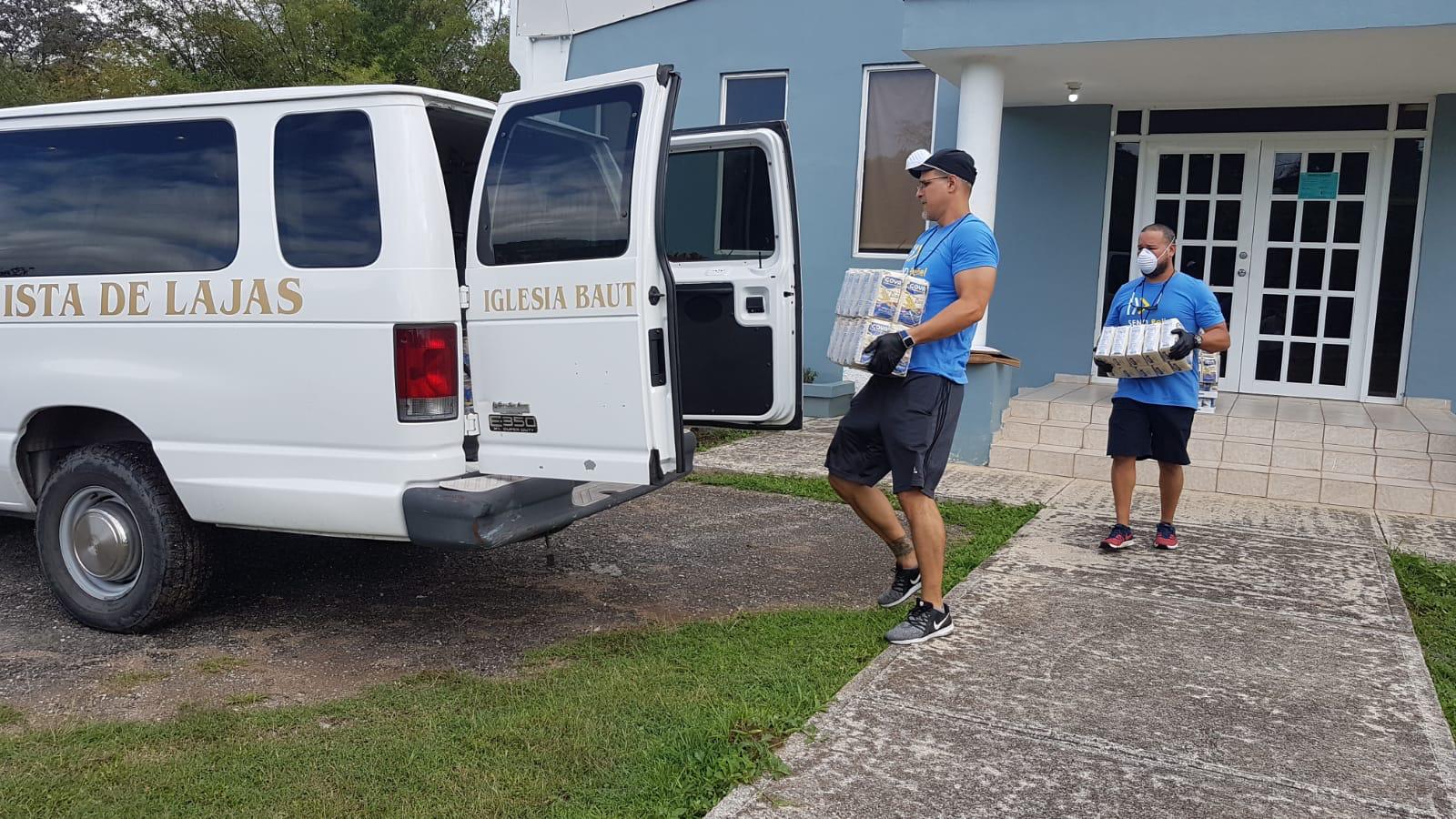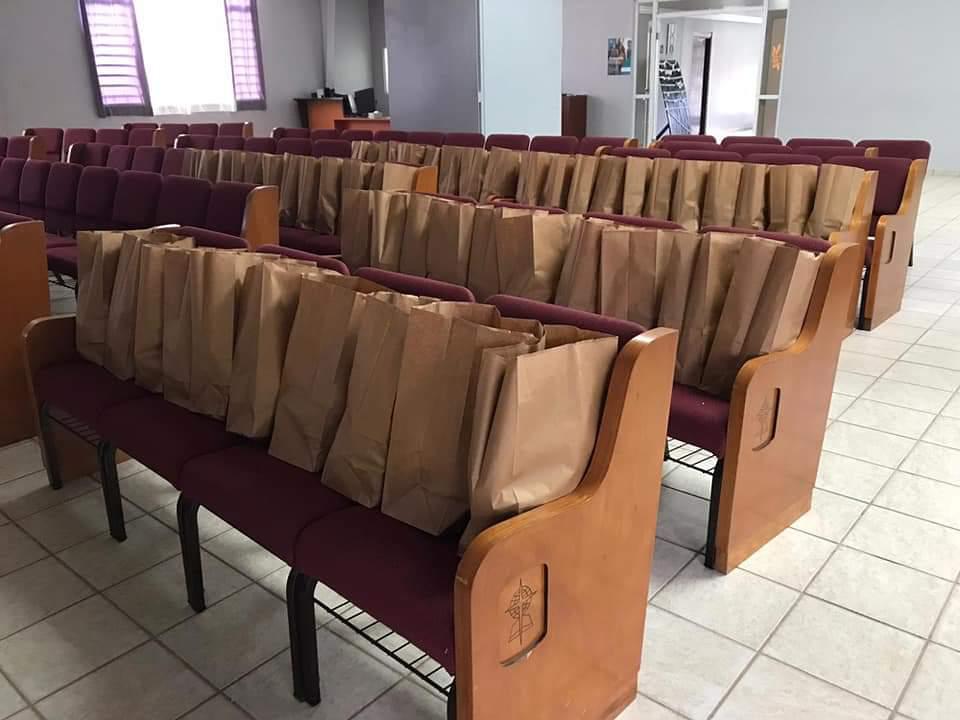
GUAYNABO, Puerto Rico (BP) — On Sunday, March 15, Puerto Rico implemented an island-wide curfew in response to COVID-19. Under the curfew, all nonessential businesses — those not providing food, cleaning services or health and medical services — were required to shut down, with all travel by the population limited during the day and restricted during nighttime hours. Since then, Send Relief has responded by distributing more than 50,000 meals to vulnerable residents across the island through 50 local churches.
 At the time of publication March 26, there were 64 confirmed cases of COVID-19 and two deaths, according to John Hopkins University’s Coronavirus Resource Center. Puerto Rico has not begun widespread testing, however, and given the flights into and out of hot spots, such as New York, many surmise that the count is actually much higher.
At the time of publication March 26, there were 64 confirmed cases of COVID-19 and two deaths, according to John Hopkins University’s Coronavirus Resource Center. Puerto Rico has not begun widespread testing, however, and given the flights into and out of hot spots, such as New York, many surmise that the count is actually much higher.
“The struggle to hold on to some type of normalcy after Hurricane Maria and the earthquakes last January continues as the island of Puerto Rico joins the rest of the world in the fight against COVID-19,” said Jonathan Santiago, a Send Relief missionary and director of Send Relief Puerto Rico.
The governor, Wanda Vázquez Garced, instituted the executive order, which was one of the most restrictive in the United States at the time. Send Relief mobilized and worked with the government to ensure they could legally provide assistance. The government granted the organization an exemption, a testimony to how the organization has earned trust through recent crisis responses, Send Relief leadership said.
Felix Cabrera, the North American Mission Board’s (NAMB) Send Puerto Rico missionary, is serving as the interim executive director for the Convention of Southern Baptist Churches in Puerto Rico. Once the lockdown was announced, he designed a distribution plan after speaking with Santiago.
“We divided the Island into seven regions and contacted key pastors and church planters in each region,” Cabrera said. “We asked them to serve as our food distribution centers so that Send Relief could send the food to them.”
Once Send Relief delivered food, pastors within each region collected the meals from a hub church, and then distributed them to the community. Food items included packs of rice, cans of beans, cans of tomato sauce and cans of meat.
“People are very grateful that organizations like Send Relief and others are stepping up,” Santiago said. “There’s always a need for many on the island, but we wanted to be proactive, knowing that the lockdown would make problems worse for those who may have already been struggling.”
 This first round of food distribution focused on three segments of the population: the elderly who are more susceptible to COVID-19, those who cannot leave their homes for health or other physical reasons and those whom pastors knew did not have the financial means to purchase food.
This first round of food distribution focused on three segments of the population: the elderly who are more susceptible to COVID-19, those who cannot leave their homes for health or other physical reasons and those whom pastors knew did not have the financial means to purchase food.
Send Relief Puerto Rico has already been planning a second round of deliveries if the governor extends the lockdown, as she is expected to do soon.
“It’s amazing to see them work together as a team, the Send Relief team, the church-planting missionaries and pastors,” said Carlos Ferrer, NAMB’s executive vice president. “They are being the hands and feet of Jesus. It’s incredibly humbling to see them meeting needs and changing lives with everything they’re doing.”
Ferrer, who originally came to the United States from Cuba as a refugee in the 1960s, has heavily invested his time and effort to serve the pastors and missionaries in Puerto Rico during NAMB’s recent ministry efforts on the island.
“Puerto Ricans have gone through a financial crisis, Hurricane Maria, the earthquakes late last year and early this year and now this virus,” Ferrer said. “They’ve had a lot to deal with the last couple of years. All kinds of people are looking for help, and Southern Baptists have come together, reaching out to people, meeting needs and sharing the Gospel.”
Some churches created a drive-thru system in their parking lots so people could pick up the food without having contact with volunteers — who wore gloves and masks as a safety measure.
Pastors delivered food from house to house after receiving calls from those who could not leave their homes.
“When we took meals to homes, we saw tears of joy,” said Cabrera. “One couple said to me, ‘Pastor, we thank God that this reminds us that we are not alone.’ Another pastor shared that a group from his church who lost their jobs were very grateful for their groceries.”
Cabrera also mentioned that Puerto Rican Southern Baptists learned, in the aftermath of the earthquakes and now the COVID-19 crisis, that they do not have to wait for help.
“As a Southern Baptist and as a Puerto Rican,” Cabrera said, “I am reminded that nothing in God’s plan is a waste. This crisis, in His hands, is a great opportunity to glorify Him, exalt Christ, strengthen believers and preach the Gospel to the lost.”
Santiago moved to Puerto Rico to become the island’s director of Send Relief in the months after Hurricane Maria hit in 2017, and it has felt as though Send Relief has been in almost perpetual response since he arrived.
“We’re not the only ones who are in constant response. The pastors of the churches are also in constant response as well,” Santiago said. “We have not seen any of the pastors struggle with responding or second guessing their response. They know what they’re called to, and they do it passionately, with commitment and, most of all, with the love that pastors should.”















